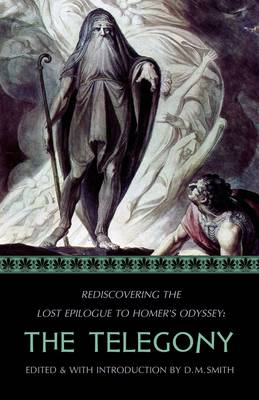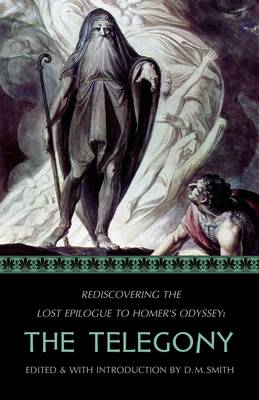
- Retrait gratuit dans votre magasin Club
- 7.000.000 titres dans notre catalogue
- Payer en toute sécurité
- Toujours un magasin près de chez vous
- Retrait gratuit dans votre magasin Club
- 7.000.000 titres dans notre catalogue
- Payer en toute sécurité
- Toujours un magasin près de chez vous
Description
In classical times, the story of the Trojan War was told in a series of eight epic poems known as the Epic Cycle, of which only the Iliad and Odyssey by Homer survive to the present day. The final poem in the sequence was Eugammon of Cyrene's Telegony-an obscure, largely forgotten post-script to the Odyssey, which told of the hero's adventures in the years after his return to Ithaca, and his eventual death at the hands of Telegonus, his eponymous son by the goddess Circe. The Telegony is now lost, but fragments of Odysseus' post-Homeric life are preserved in the works of later authors. Following on from his 2017 reconstruction of the Cypria, editor D. M. Smith provides an exhaustive compilation of these many and varied sources, illustrating how Eugammon's poem was just one of several competing traditions concerning Odysseus' eventual fate. Included are excerpts from Apollodorus' Bibliotheca, Hyginus' Fabulae, Parthenius' Erotica Pathemata, and the fictional Trojan War diary of Dictys Cretensis, as well as the writings of Oppian, Plutarch, Servius, and the second-century geographer Pausanias. Smith also presents two medieval interpretations of the Telegonus story by the Middle English poets John Gower and John Lydgate. The Telegony may be gone forever, but in its absence, this comprehensive anthology will at least shed some light on what became of the wily son of Laertes after Homer left off.
Spécifications
Parties prenantes
- Auteur(s) :
- Editeur:
Contenu
- Nombre de pages :
- 134
- Langue:
- Anglais
- Collection :
- Tome:
- n° 2
Caractéristiques
- EAN:
- 9798629652120
- Date de parution :
- 26-05-20
- Format:
- Livre broché
- Format numérique:
- Trade paperback (VS)
- Dimensions :
- 129 mm x 198 mm
- Poids :
- 136 g







